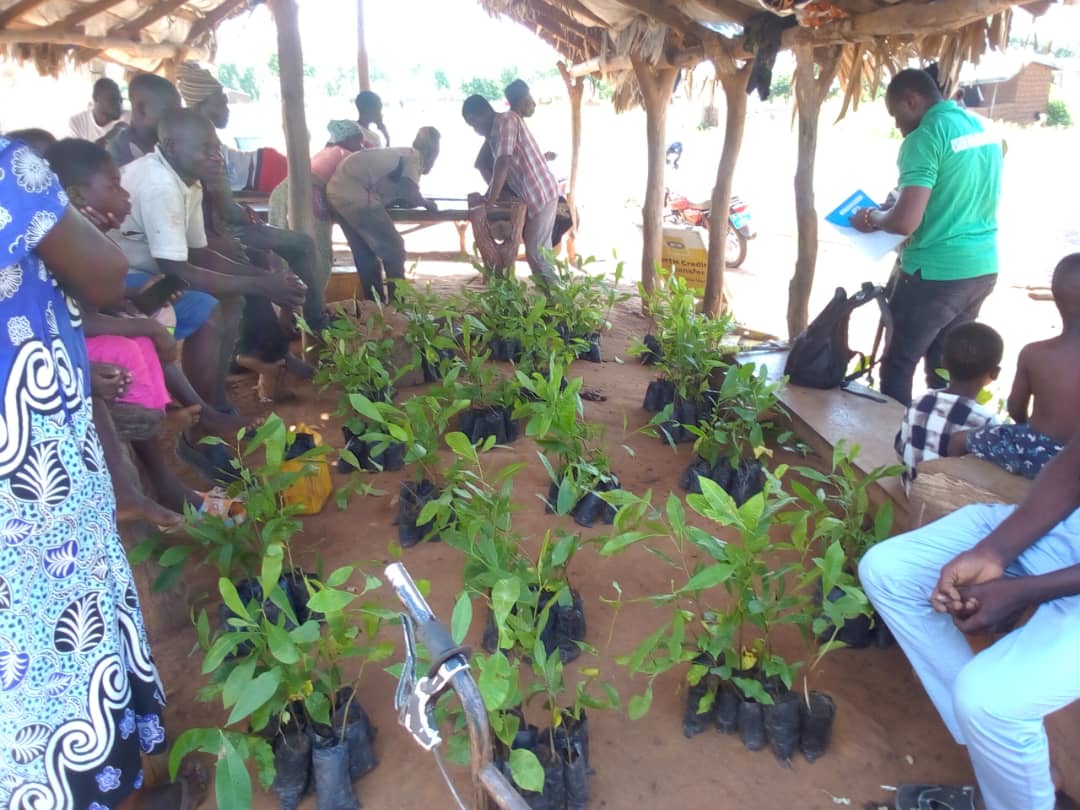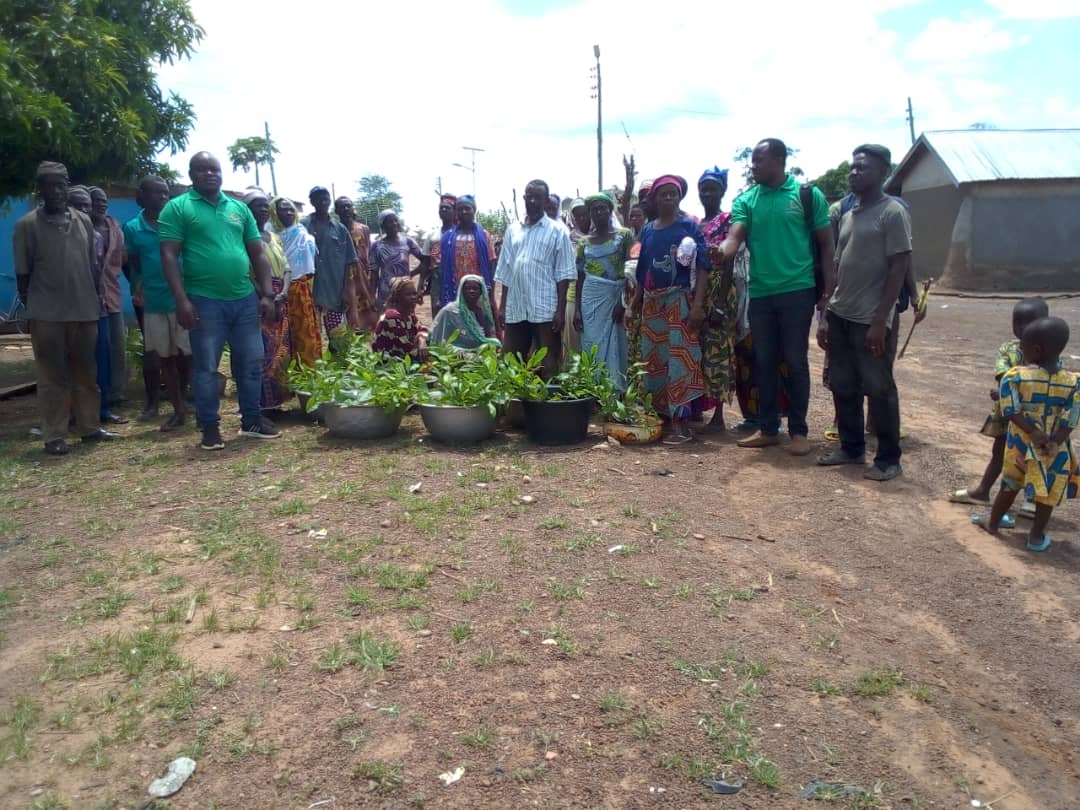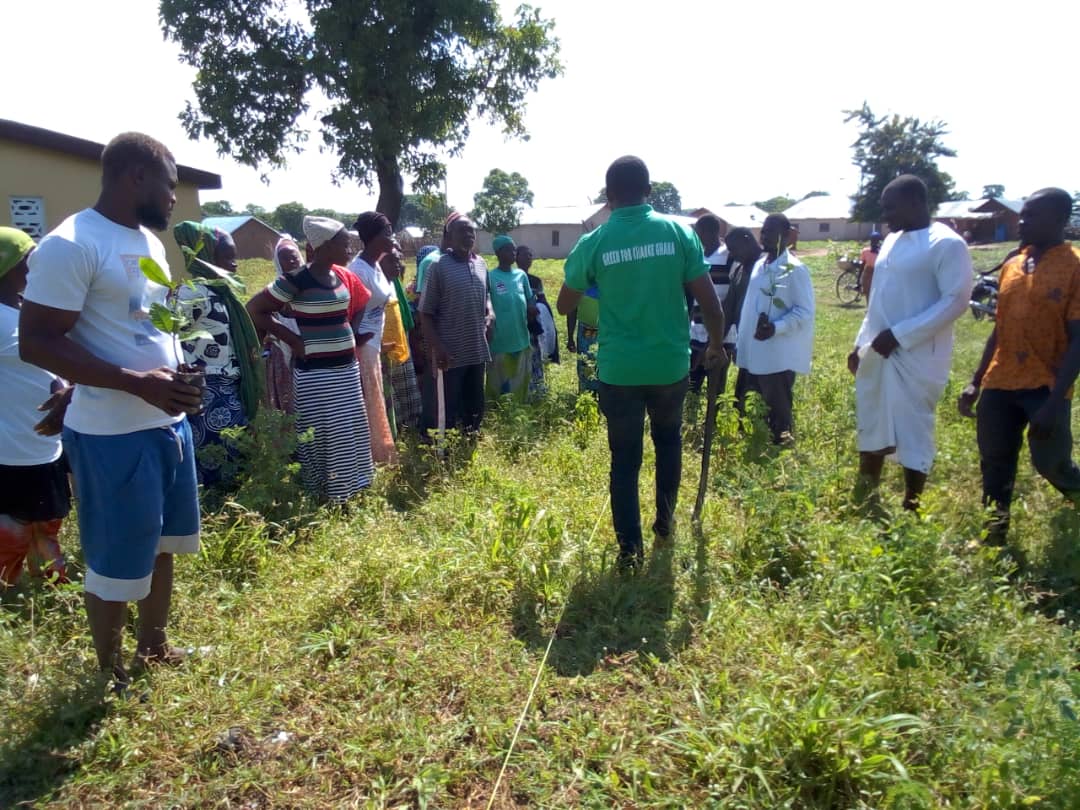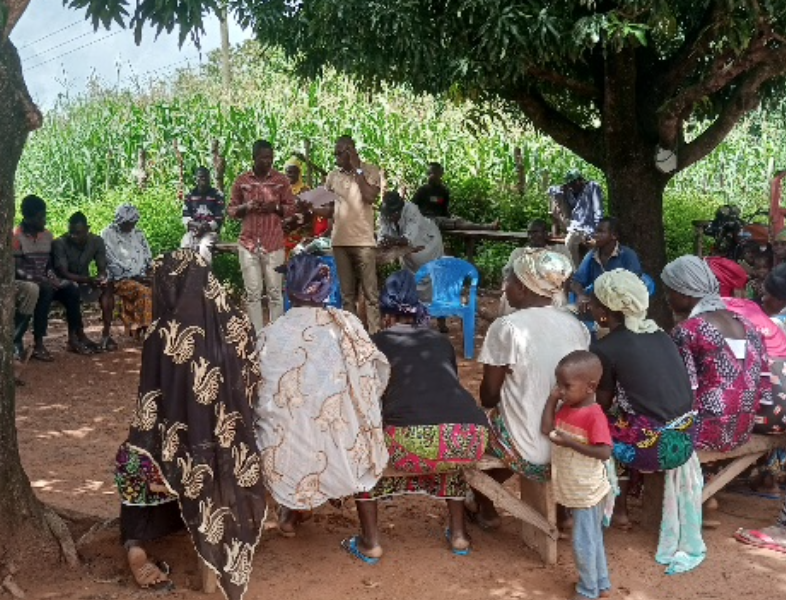GREEN FOR CHANGE GHANA PARTICIPATION IN THE 2023 GREEN GHANA CAMPAIGN
As part of Green for Change Ghana’s mandate to conserve biodiversity in Ghana, especially in the savannah ecological landscape, we partook in the 2023 Green Ghana Campaign in collaboration with the Forest Service Division (FSD) across three (3) communities within the West Gonja Municipality in the Savannah Region of Ghana. About 1,500 cashew seedlings were distributed to 152 beneficiaries made-up of 86 males, and 66 females with each receiving 10 seedlings and were planted in schools, farms under an agroforestry system, and community-degraded areas. Before the distribution, the Green for Change Ghana team had practical training sessions for beneficiaries on the best practices in tree planting.
The Green Ghana campaign is an initiative by the government for Ghanaians to plant at least five million trees across the country to replace depleting plant stock. Thanks to FSD for the seedling support

























